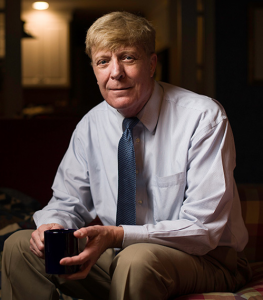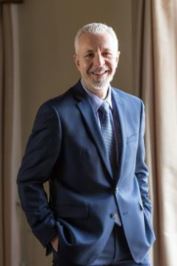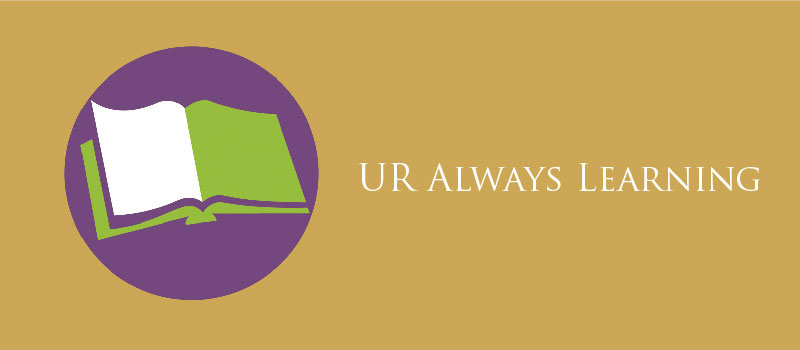“UR Always Learning” at The Highlands
“UR Always Learning” is a series of free lectures by The Highlands at Pittsford and the University of Rochester. The lectures are held at The Hahnemann Club on The Highlands at Pittsford campus and are open to the public. All of the lectures are taught by University of Rochester faculty and associates.
The University of Rochester and The Highlands at Pittsford are committed to the concept of Lifelong Learning. If you are committed, too, we encourage you to register for what promises to be a series of thought-provoking and enriching lectures.
Express Registration via email: HighlandsEvents@urmc.rochester.edu – or – Call our Automated Phone Registration at: (585) 641-6303. Classes have limited space and fill quickly. Sign up today!
Fall/Winter 2018 Lecture Series
Sustainable Goals: Climate Change, Poverty, and Education
Milena Novy-Marx, Ph.D., Visiting Assistant Professor, Department of Political Science
Date: Monday, October 22, 2018
Time: 4:00 pm-5:00 pm
In 2015, all UN Member States unanimously adopted the Sustainable Development Goals, which created a blue print and goals for achieving many aspects of sustainable development by 2030. These goals include eradicating extreme poverty, addressing climate change, and providing quality education for all. This talk will examine the progress the world is making toward these lofty goals as well as examine the policies and projects that are making a difference in peoples’ lives.
The Presidents and the Pastime:
The History of Baseball and the White House, Part II
 Curt Smith, Senior Lecturer, Department of English
Curt Smith, Senior Lecturer, Department of English
Date: Monday, October 29, 2018
Time: 4:00 pm-5:00 pm
Curt Smith’s new book, The Presidents and the Pastime: The History of Baseball and the White House was released in June. In the second installment of this presentation, Curt will further discuss how these two areas of interest intersect to form a ‘special relationship’ between politics and baseball unique to any two great institutions in America. This stroll down memory lane will recall folks such as FDR, Ike, JFK, Babe Ruth, Ted Williams, Mickey Mantle, all the way up to Ronald Reagan. Curt will also talk about Derek Jeter and more recent players and their relationship with White House politics.
Growing Through Diversity, One Note at a Time
Dr. Petar Kodzas, Associate Dean of the Eastman Community Music School
Date: Monday, November 5, 2018
Time: 4:00 pm-5:00 pm
Who we are as a person is a combination of many factors. Where we grew up, our mother tongue, the food we are used to, and what we read are all elements that contribute to the sum of who we are, among other factors. As we age and mature, our interests often tend to narrow and our tastes can become less flexible.
Growing up surrounded by music and eventually becoming a professional musician, Dr. Kodzas had what he considers great luck to be involved as a performer in different musical genres and styles. He often observed a type of musical “separatism” between different groups with which he played. Going back centuries or looking at the Top 10 charts, people tend to identify with certain styles or composers and become very emotional in defending their choices.
In today’s world of technological marvels when almost any imaginable music is accessible to almost everyone, one would expect that musical “separatism” would vanish. Unfortunately, it is perhaps becoming even stronger through many social forums through which larger numbers of people can communicate. Instead of using the opportunity to learn about Scandinavian fiddling, latest opera productions, or even local community orchestra performances, audiences stay locked in their listening comfort zone.
Dr. Kodzas will explore how our musical taste is developed from earliest musical memories, through important events in life, to what we are listening to today, in hopes that we can find ways to break some unconscious barriers. He will share live performances of some of the most important works of music that influenced his decision to become a musician and how he overcame his musical prejudice.
Happy 200th Birthday Frederick Douglass
Autumn Haag, Special Collections Librarian, Archivist for Research and Collections Department of Rare Books, Special Collections, and Preservation, River Campus Libraries
Date: Monday, November 12, 2018
Time: 4:00 pm-5:00 pm
2018 marks the 200th anniversary of Frederick Douglass’s birth. Douglass spent 25 years of his life in Rochester, and he and his family are buried in Mt. Hope Cemetery. This talk will discuss Douglass’s life and work, how the City of Rochester has celebrated him this year, and the Douglass papers held at the University of Rochester.
The Greatest of All American Legends, Abraham Lincoln (FULL)
Grant Holcomb, Director Emeritus, Memorial Art Gallery, University of Rochester
Date: Wednesday, November 14, 2018
Time: 4:00 pm-5:00 pm
Abraham Lincoln has long been referred to as ‘the greatest of all American legends’. Few figures in our history have so greatly appealed to American artists through the centuries. This illustrated lecture will explore the various images of Lincoln
whether humble or heroic, laudatory, or critical.
Images from the Windows of Time: Heading South
Gary D. Paige, M.D., Ph.D., Professor Emeritus, Neurology Chair Emeritus of Neurobiology & Anatomy
Date: Monday, November 26, 2018
Time: 4:00 pm-5:00 pm
Photography has been a hobby since receiving his first camera at the age of 7; a classic Kodak Brownie Hawkeye. The hobby replaced music (camera for trombone) as an active artistic outlet and augmented dramatically in the current digital age. The challenge remains honing the craft while maintaining an engaging day job in medicine and science, now less imposing given semi-retirement. Images from eco-adventures in exotic locations provide opportunities to feed this ongoing passion and hobby. His wife, Myrna, shares this passion and together they form a photographic team. This lecture will focus on regions south of our border from Baja, Mexico, Costa Rica, and Panama to Ecuador, Peru, and Chile.
Are You Walking In Shoes That Are Too Small?
Jennifer Klein, Physical Therapist, Spiritual Caregiver, Thompson Health
Date: Wednesday, December 5, 2018
Time: 4:00 pm-5:00 pm
This question is a reflection from the great psychologist Carl Jung – alluding to the restricted lives we often lead in order to fit our sense of who we “should be” in this world. Current neuroscience suggests that by the age of 35 we are 95% memorized thoughts, behaviors and emotional reactions. Does this sound like a formula for living up to your potential? You are the storyteller and script writer of your life. What story are you telling? Change your story, change your script and change your life!
Recent Acquisitions from Women in American History
Jessica Lacher-Feldman, Joseph N. Lambert and Harold B. Schleifer Director of Rare Books, Special Collections, and Preservation, River Campus Libraries
Date: Wednesday, December 12, 2018
Time: 4:00 pm-5:00 pm
The University of Rochester River Campus Libraries is home to an extraordinary Rare Books, Special Collections, and Preservation Department to which Jessica Lacher-Feldman is the Director. In her lecture, she will discuss the recent acquisitions of works from three remarkable women in 19th and early 20th century American history; Isabella Beecher Hooker, Amelia Barr, and Charlotte Perkins Gilman.
“UR Always Learning” at The Highlands Read More »


